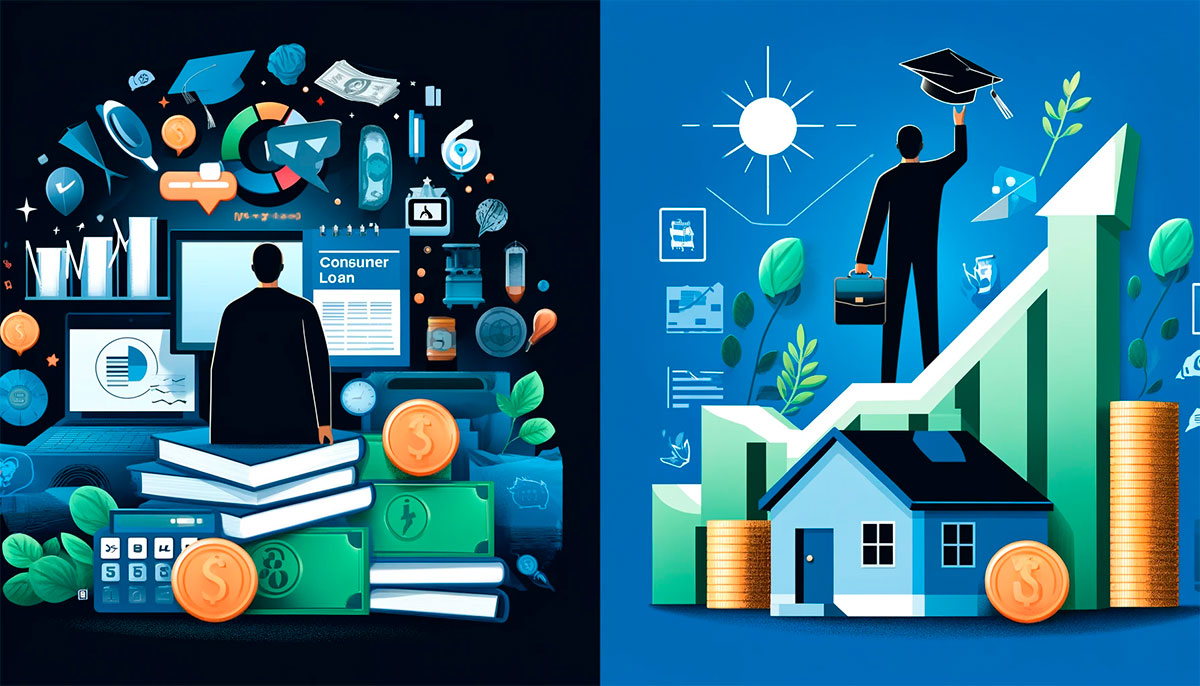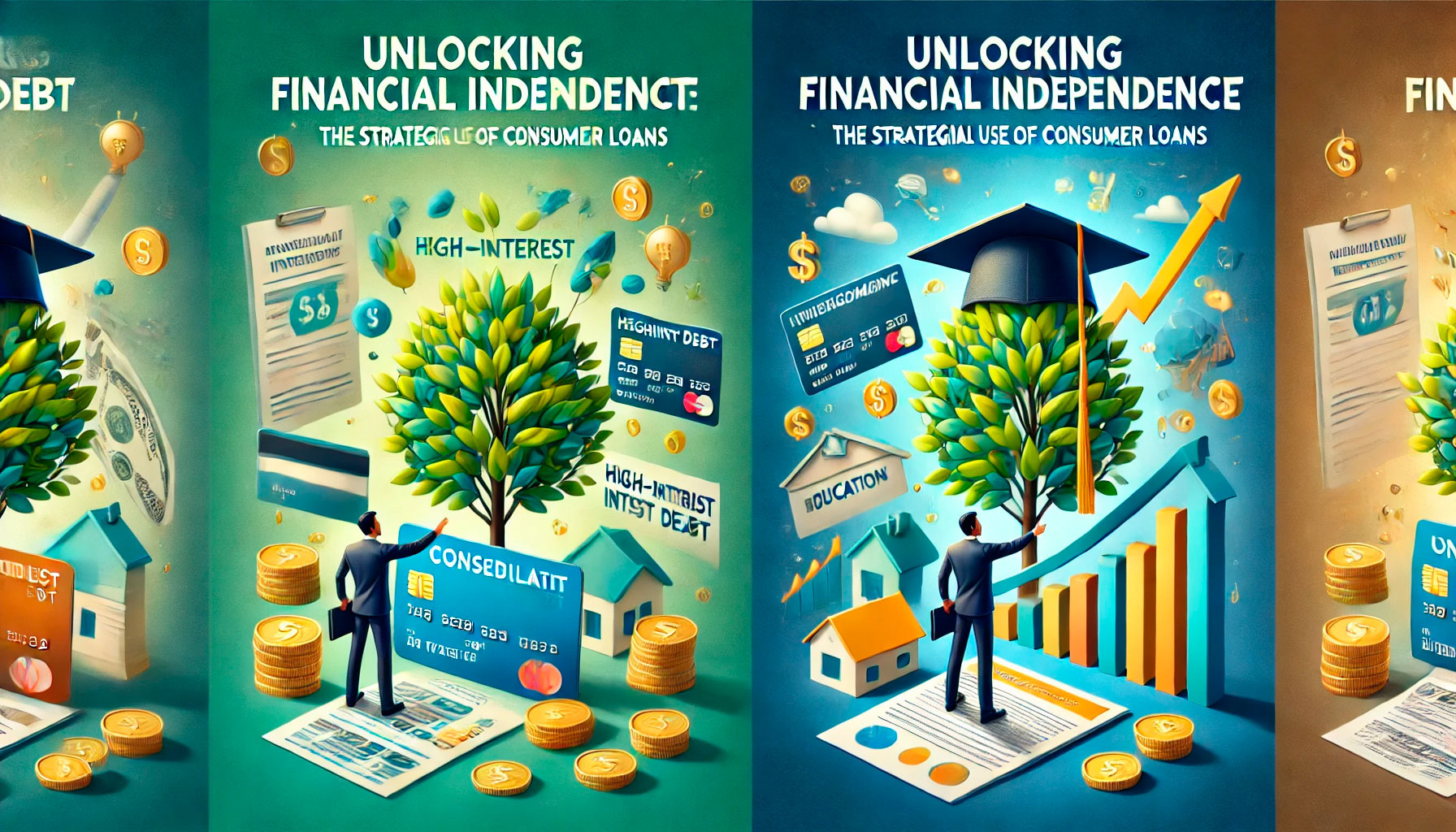Consumer loans are a financial tool that can be pivotal in helping individuals achieve financial independence. While they are often associated with debt, when used wisely, consumer loans can enable you to make strategic investments, manage your finances better, and reach important life goals. In this guide, we’ll explore how consumer loans can pave the way to financial freedom and the best practices for using them responsibly.
What Are Consumer Loans?
Consumer loans are personal loans offered by banks, credit unions, and online lenders to individuals for various purposes. Unlike business loans, which are designed for commercial activities, consumer loans are typically used for personal needs such as home renovations, debt consolidation, education, or buying a car. These loans provide borrowers with the flexibility to access funds without needing to save for years, offering the chance to make important financial moves sooner.
How Consumer Loans Can Lead to Financial Independence
1. Consolidating High-Interest Debt
One of the most effective uses of consumer loans is consolidating high-interest debts, such as credit card balances. Consumer loans generally have lower interest rates than credit cards, which means that by consolidating multiple high-interest debts into a single loan, you can reduce the amount of interest paid over time. This lowers your monthly payments and frees up more of your income for savings and investments, bringing you closer to financial independence.
2. Investing in Education and Skill Development
A key to achieving financial independence is increasing your earning potential. Consumer loans can be used to finance education, certifications, or skill development courses that allow you to qualify for higher-paying jobs or start a new career. Investing in your education can lead to long-term income growth, making it easier to pay off the loan while securing a better financial future.
Homeownership and Property Investment
Consumer loans, particularly in the form of personal or home improvement loans, can be used to invest in property. Homeownership is a significant step toward financial independence, as property values tend to appreciate over time. Additionally, owning a home eliminates the cost of rent, helping you build equity. Whether you’re making renovations to increase your home’s value or purchasing a property, consumer loans can provide the capital you need to enter the real estate market.
3. Financing Major Life Events
Many major life events, such as weddings, the birth of a child, or relocating to a new city, come with considerable expenses. Consumer loans offer the flexibility to finance these important events without depleting your savings. By spreading the cost over time, you can maintain financial stability while managing short-term expenses that would otherwise disrupt your budget.

The Risks of Consumer Loans
While consumer loans can be beneficial, they also come with risks if not managed carefully. Below are some potential drawbacks to keep in mind:
1. High Interest Costs
If you do not qualify for a loan with a low interest rate, consumer loans can become expensive. Borrowers with lower credit scores may face higher interest rates, which can increase the total cost of the loan. Before taking out a loan, it’s important to shop around and find the best rates available. Additionally, using loan comparison tools can help ensure that you are getting the most favorable terms for your financial situation.
2. Debt Accumulation
Relying too heavily on consumer loans can lead to an accumulation of debt, making it harder to achieve financial independence. Borrowing more than you can afford to repay can put a strain on your finances, leading to missed payments, penalties, and damage to your credit score. It’s important to take out loans only when necessary and to ensure that you have a clear plan for repayment.
Impact on Credit Score
Taking out a consumer loan and making timely payments can improve your credit score, but missing payments or defaulting on a loan can damage it. A poor credit score can make it harder to secure future loans, mortgages, or even rental agreements. This is why it’s critical to assess your financial situation and ensure that you can comfortably manage monthly payments before committing to a loan.
Best Practices for Using Consumer Loans
To maximize the benefits of consumer loans and avoid the risks, consider these best practices:
- Borrow within your means: Only take out loans that you can afford to repay based on your income and budget.
- Shop around for the best rates: Compare interest rates and loan terms from different lenders to secure the most favorable deal.
- Use loans for essential expenses: Focus on borrowing for necessary or high-return investments, such as education, home improvements, or debt consolidation.
- Make timely payments: Consistently making payments on time will not only help you avoid penalties but will also improve your credit score.
Conclusion
Consumer loans can be an effective tool on your journey toward financial independence when used wisely. By consolidating debt, investing in education, or financing major life goals, consumer loans offer the flexibility and opportunity to improve your financial situation. However, it is essential to approach borrowing with caution and to have a clear repayment plan in place. When managed responsibly, consumer loans can support your long-term financial goals and help you achieve the independence you seek.



